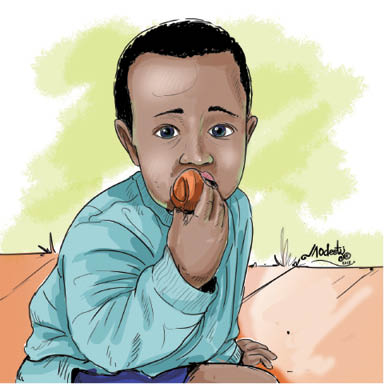My child is diagnosed with Down syndrome
My child who is now is primary school has learning challenges. After thorough examination and investigations, he is diagnosed with Down syndrome. Please use your column to enlighten the public on this problem Benedict V Down syndrome varies in severity among individuals, causing lifelong intellectual disability and developmental delays. It’s the most common genetic […]

My child is diagnosed with Down syndrome
My child who is now is primary school has learning challenges. After thorough examination and investigations, he is diagnosed with Down syndrome. Please use your column to enlighten the public on this problem
Benedict V
Down syndrome varies in severity among individuals, causing lifelong intellectual disability and developmental delays. It’s the most common genetic chromosomal disorder and cause of learning disabilities in children. It also commonly causes other medical abnormalities, including heart and gastrointestinal disorders. (Mayoclinic)
What are the Symptoms?
Some of the more common features include:
• Flattened face and small head
• Short neck and protruding tongue
• Upward slanting eyelids (palpebral fissures)
• Unusually shaped or small ears
• Poor muscle tone and broad, short hands with a single crease in the palm
• Relatively short fingers and small hands and feet
• Excessive flexibility
• Tiny white spots on the coloured part (iris) of the eye called Brushfield’s spots
• Short height
• Infants with Down syndrome may be average size, but typically they grow slowly and remain shorter than other children the same age.
• Intellectual disabilities
• Most children with Down syndrome have mild to moderate cognitive impairment. Language is delayed, and both short and long-term memory is affected.
What are the Causes?
• Down syndrome results when abnormal cell division involving chromosome 21 occurs. These cell division abnormalities result in an extra partial or full chromosome 21. This extra genetic material is responsible for the characteristic features and developmental problems of Down syndrome.
What are the Risk factors?
• Some parents have a greater risk of having a baby with Down syndrome. Risk factors include:
• Advancing maternal age. A woman’s chances of giving birth to a child with Down syndrome increase with age because older eggs have a greater risk of improper chromosome division.
• Both men and women can pass the genetic translocation for Down syndrome on to their children.
• Having had one child with Down syndrome.
What are the Complications?
These complications can include:
• Heart defects. About half the children with Down syndrome are born with some type of congenital heart defect.
• Gastrointestinal (GI) defects. GI abnormalities occur in some children with Down syndrome and may include abnormalities of the intestines, esophagus, trachea and anus.
• Immune disorders. Because of abnormalities in their immune systems, people with Down syndrome are at increased risk of developing autoimmune disorders, some forms of cancer, and infectious diseases, such as pneumonia.
• Sleep apnea. Children and adults with Down syndrome are at greater risk of obstructive sleep apnea.
• Obesity. People with Down syndrome have a greater tendency to be obese compared with the general population.
• Spinal problems. Some people with Down syndrome may have a misalignment of the top two vertebrae in the neck (atlantoaxial instability).
• Leukemia. Young children with Down syndrome have an increased risk of leukemia.
• Dementia. People with Down syndrome have a greatly increased risk of dementia.
How to Prevent it?
If you’re at high risk of having a child with Down syndrome or you already have one child with Down syndrome, you may want to consult a genetic counselor before becoming pregnant. A genetic counselor can help you understand your chances of having a child with Down syndrome. He or she can also explain the prenatal tests that are available and help explain the pros and cons of testing.
How to Diagnose?
• Screening tests can indicate the likelihood or chances that a mother is carrying a baby with Down syndrome.
• Diagnostic tests can identify or diagnose whether your baby has Down syndrome or not.
What are the Treatment options?
Early intervention for infants and children with Down syndrome can make a major difference in improving their quality of life. Because each child with Down syndrome is unique, treatment will depend on individual needs.
